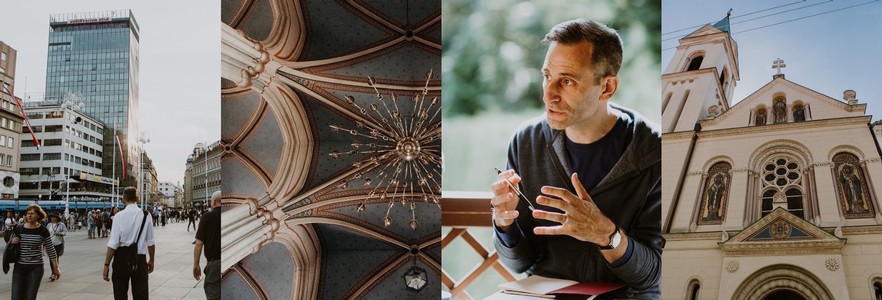Vision in the Balkans
The Balkans Semester for the Study of War and Peace is an interdisciplinary, humanities-based program centered around the themes of war and peace, conflict and reconciliation. The program will provide students a unique opportunity to study these themes while learning first-hand from people on both sides of recent wars and genocides who are grappling daily with problems of justice and forgiveness and with navigating a path toward sustainable peace.
Croatia, along with Serbia and Bosnia & Herzegovina will serve as the backdrop for the exploration of these issues and for asking questions such as: What is the essence of peace? What events and attitudes lead to war? How can a society recovering from war hope to establish lasting peace? What is a Christian response to war? And how might we formulate a distinctively Christian understanding of reconciliation?
PURPOSE
- To allow students to explore the themes of war, peace and reconciliation while living in a society currently recovering from recent wars, struggling for lasting peace, and attempting to fashion for itself a post-war identity.
- To engage in a collaborative investigation of these themes through study of relevant historical, literary, philosophical, socio-political and theological texts, and through interaction with local and international scholars and practitioners.
- To examine the role of religion in local conflicts and to enable students to wrestle with the complexities of peace-making through interreligious dialogue.
- To challenge students to consider their own place and role in the apparatuses that contribute to war and peace, and to provide avenues for a more concerted and thoughtful engagement with societal and political forces that dominate or emancipate their subjects.
- To encourage students to formulate an informed, Christian response to war, and to work to promote a Christian understanding of peace, both in their personal lives and on a global, social and political scale.
"This program provides a unique platform for studying not only the specific cultural, religious, and political topics related to the Balkans, but also for developing broader concepts and models applicable to multicultural or conflict-ridden areas with diverse ethnic and religious populations, transitional political systems, and a variety of traditions.
Its richness is evident in the broad range of topics it covers as well as in the inclusion of a strong theoretical background. It holds the promise of bringing together some of the best experts on this area in a ‘hands on’ environment that will expose students to real-life issues and immerse them in the culture."
—Aida Vidan, Harvard University (Student programs coordinator, Minda de Gunzburg Center for European Studies, Harvard University Instructor for Bosnian, Croatian and Serbian; Co-chair, CES’s Southeastern Europe Study Group)


 Balkans Semester for The Study of War and Peace
Balkans Semester for The Study of War and Peace Vision in the Balkans
Vision in the Balkans


